China moved the world a few steps closer to war this week
Beijing’s aggressive military reaction to Nancy Pelosi’s visit to Taiwan underlines Joe Biden’s feebleness, transforming strategic ambiguity into something like strategic dementia.
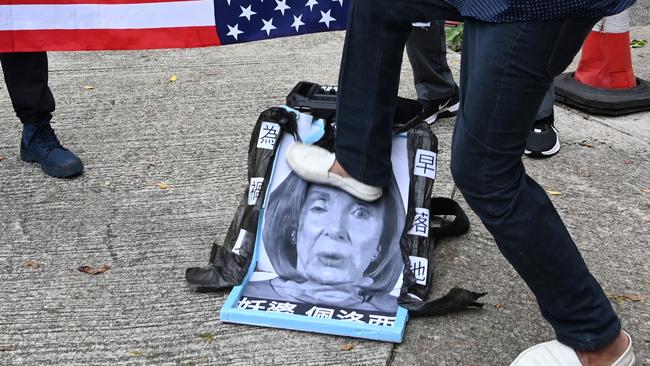
– Chinese President Xi Jinping in a phone conversation with
US counterpart Joe Biden
“America stands with Taiwan, our democratic partner, as it defends itself and its freedom.”
–Nancy Pelosi, Speaker of the
US House of Representatives,
while visiting Taiwan
“It’s absolutely imperative we review the current strategic circumstances, which I rate the worst I have ever seen in my career and lifetime.”
– Sir Angus Houston, former chief of the Australian Defence Force
The world moved a few steps closer to war this week – war of unimaginable consequences between the world’s two superpowers. We’re still probably a long way away from war, but war got closer, more possible, more imaginable.
Chinese naval warships and fighter aircraft have conducted live-fire military exercises in six or seven locations that form a circle around the island of Taiwan. The areas the People’s Liberation Army navy and air force units have been designated to operate in include parts of Taiwan’s territorial waters, within 12 nautical miles of its shores.
Beijing has forbidden access to international shipping to the areas of its military exercises, as well as to the Taiwan Strait. Thousands of international container vessels normally transit the Taiwan Strait. The Chinese exercises and exclusions have created serious dislocations in international freight and disruptions to flight schedules into and out of Taiwan and in the region generally. Taiwan claims dozens of Chinese fighter jets have breached its air space.
Meanwhile the US Seventh Fleet is deploying giant aircraft carrier the USS Ronald Reagan, and all its attendant ships and aircraft, into nearby waters. The US is also flying special planes out of Okinawa to monitor Chinese ballistic missile firings. The chance of accident and miscalculation is substantial.
At the same time – though the timing is coincidental – the Albanese government has announced a fast-paced but comprehensive and powerful strategic review to be jointly headed by former Australian Defence Force chief Sir Angus Houston and former Labor defence minister Stephen Smith. It will examine the structure and posture – or basing locations – of the ADF. It will report by March next year at the latest and one of its objectives, according to Defence Minister Richard Marles, is to urgently increase the ADF’s “projection and lethality”.
Beijing also fired live artillery into the Taiwan Strait. More concerning, it fired Dongfeng ballistic missiles into waters around Taiwan. Tokyo protested when several Chinese missiles landed in Japan’s exclusive economic zone. This is the most aggressive display of Chinese military force around Taiwan since at least 1996. Taiwan claims Beijing repeatedly breached its air space and endangered shipping and aviation.
The current crisis was provoked, not caused, by Pelosi’s decision to visit Taiwan as an act of solidarity with the island democracy. A joint statement of G7 foreign ministers demanded Beijing not use Pelosi’s visit as “a pretext for aggressive action in the Taiwan Strait”. The G7 said Beijing was increasing tension in the region and noted that its elected representatives frequently travelled the world.
Beijing reacted furiously, with foreign minister Wang Yi abusing the G7 for interfering in China’s sovereignty. Beijing cancelled a scheduled meeting for Wang with the Japanese foreign minister.
The whole messy saga reveals how tense and dangerous the situation is between China, Taiwan and the US. Mark Milley, chairman of the US Joint Chiefs of Staff, has testified to congress that China wants to be able to invade Taiwan by 2027. CIA chief William Burns said Beijing was considering when, not whether, to take military action against Taiwan.
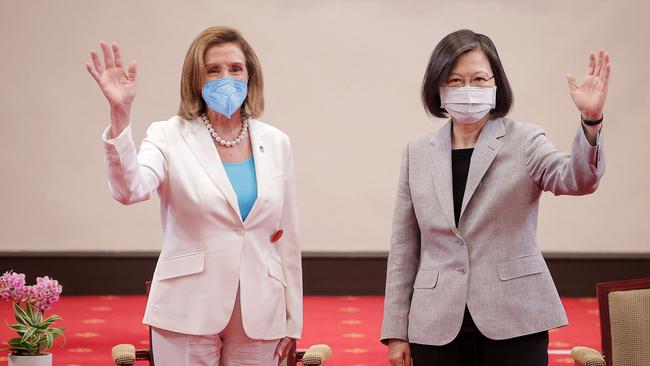
Two important new Australian books by frontline policymakers canvass such likelihoods.
The Avoidable War, a typically impressive piece of analysis by Kevin Rudd, comments: “It is relatively easy to envisage a flow of events that mutates into a sort of Cold War 2.0, which, in turn, runs the risk of triggering a hot one.”
In Danger on Our Doorstep, a totally different type of book, but equally brilliant, Liberal senator (and retired major general) Jim Molan envisages another war scenario. Molan thinks Beijing could decide not to attack Taiwan directly but to attack the entirety of US military infrastructure in Asia through cyber attacks and then missiles, rendering the US position in Asia untenable. And probably unrecoverable except at exorbitant cost. Beijing could then take Taiwan at its leisure.
This is an extreme scenario but war is an extreme business, and Molan’s dramatic prose shows how Beijing might do it. It’s unlikely because of the extreme risks Beijing would run, and America’s vast retaliatory potential, but it’s certainly a possibility.
Molan argues the region, including the US and its allies, is preparing for, or not preparing for as the case may be, the wrong war – a contained conflict over Taiwan – whereas in his view Beijing could be tempted by something far larger. Rudd examines how even a localised conflict over Taiwan could become a catastrophic major war.
All of this may seem far away – as far away as war seemed in economically integrated, culturally connected, deeply civilised Europe in 1913. But this notional conflict, in one form or another, is constantly war-gamed at think tanks around the world.
It all seemed a little closer this week.
Xi Jinping has repeatedly declared that he wants to establish Chinese control over Taiwan, that he wants China to become the most powerful nation in the world, and that the Chinese military should be ready and able to wage war.
Nonetheless, Xi is a rational, calculating national leader, not prone to potentially suicidal risks, though most analysts think China’s appetite for risk has increased markedly in recent years. This is partly because Beijing believes the US is in irreversible strategic, social and economic decline and the winds of history favour it.
There are as many analysts, though, who see Beijing beset by its own set of problems, including much weaker economic growth, the social, cultural and economically stultifying consequences of Xi’s severely repressive policies, and the looming demographic time bomb in which China’s workforce will soon start to shrink and its dependency ratio increase. It will grow old before it has grown rich.
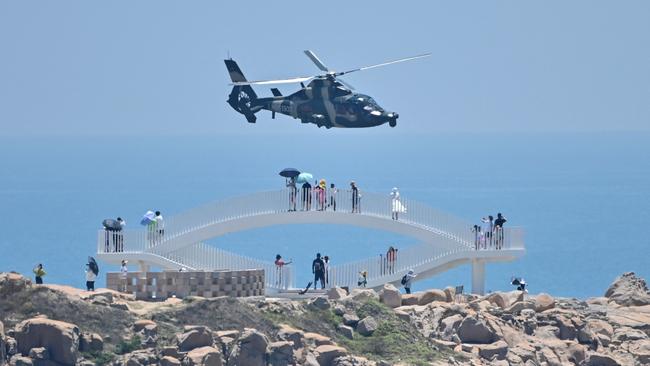
The status of Taiwan is a historical oddity. Taiwan had a native population for thousands of years before the Chinese arrived. Mainland China annexed Taiwan but gave up control of it to Japan in 1895. Since then Taiwan has been under mainland rule for just four years, from 1945 to 1949. It has never been under the rule of communist China.
In 1949, the communists defeated the nationalists in the Chinese civil war. The nationalists, led by Chiang Kai-shek, fled to Taiwan and set up a government in exile there.
It was pretty rough and dictatorial in its own right but by the mid-1980s had thoroughly democratised. Since then, Taiwan, today with 23 million people, has become one of the most democratic, prosperous and successful societies in the world, a living rebuke to Beijing’s claim that democracy is incompatible with Chinese culture. For a time the government in Taiwan claimed to be the true government of all China, as did, naturally, the communist government in Beijing. This odd historical passage has led to the diplomatic fig leaf of “one China” that applies today.
In the early 1970s, under Richard Nixon, the US made an opening to China, essentially to recruit it into the anti-Soviet ranks of the Cold War. However, the American vision was also to bring China into the global economy and to liberalise it through economic development and international exposure.
The Chinese leadership itself desperately wanted economic development and for 10 years from 1979 this process seemed to be working for both sides. Then, when the Chinese Communist Party’s authority was challenged in huge pro-democracy demonstrations in 1989, it responded with the Tiananmen massacre and savagely increased repression. These trends have accelerated since Xi took over the leadership a decade ago. His rule now rests on repression, nationalism and economic growth, in that order.
When the US switched diplomatic recognition to Beijing in 1979, it quickly passed the Taiwan Relations Act, which committed the US to helping Taiwan maintain its security.
The theology of the US’s one-China policy, which is also Australia’s one-China policy, is convoluted to say the least. It holds that there is one China and China and Taiwan are part of that entity. However, it also holds that any settlement between China and Taiwan must be peaceful and that no one should seek unilateral change to the status quo. Anthony Albanese restated this position for Australia this week.
Under the status quo, Taiwan is de facto independent but must not formally declare independence. Most nations, including Australia, don’t have formal diplomatic relations with Taiwan but maintain de facto embassies under the guise of representative offices.
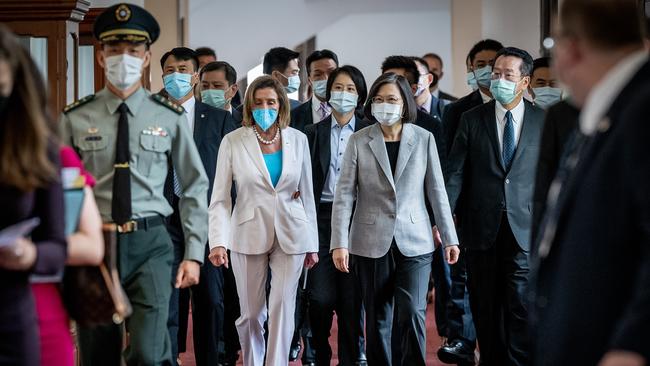
Both Beijing and Washington accuse each other of trying to change the status quo. In recent years Beijing has become extremely aggressive towards Taiwan, frequently challenging its air space and doing everything possible to prevent its participation in multilateral bodies. This is in striking contrast to Beijing’s attitude 20 years ago, when it agreed to join the Asia-Pacific Economic Co-operation forum alongside Taiwan.
For its part, Beijing believes Washington is fomenting Taiwanese independence through gestures such as Pelosi’s visit. This is simply not true because Washington has consistently warned Taiwanese leaders they must not declare formal independence and, if they did, then the US would not feel obliged to protect them militarily if Beijing attacked.
Theoretically, Washington maintains a policy of “strategic ambiguity” over whether it would ever come to Taiwan’s military aid. Three times this year US President Joe Biden has said if Beijing attacked Taiwan the US would intervene militarily. Each time Biden’s officials have “walked back” his comments and reasserted strategic ambiguity.
The purpose of strategic ambiguity is to leave sufficient possibility of US intervention so Beijing doesn’t invade, and sufficient possibility of US non-intervention so Taipei doesn’t do anything irresponsible or provocative. In other words, Washington does not cede to Taipei the right to commit it to war with China.
Nonetheless, the moral, political and geo-strategic obligation of the US to Taiwan is enormous, historic, unavoidable.
Morally, Taiwan is a perfectly legitimate democracy. There is no case for its forceful absorption into a communist dictatorship. The US cannot be indifferent to the fate of a Pacific democracy. For Australia, the idea of the US dispensing with a 24-carat Pacific democracy because it’s too hard to keep it free should send chills down the spine.
More than that, post-war Taiwan developed entirely under US tutelage. Even more acutely, for a time Taiwan had a nuclear weapons program. It was an advanced program and not finally shut down until the late 1980s. If it still had that program, Taiwan today would be secure from attack by Beijing. The US persuaded Taiwan to give up nuclear weapons ambitions on the basis that it would benefit from US defence.
And finally, militarily, Beijing would be vastly, vastly more powerful if it possessed the force projection capabilities that Taiwan’s geographical location affords. America’s position in Asia would likely be unsustainable, Japan would be directly threatened and Beijing’s regional dominance ensured.
So the US cannot allow Beijing to conquer Taiwan.
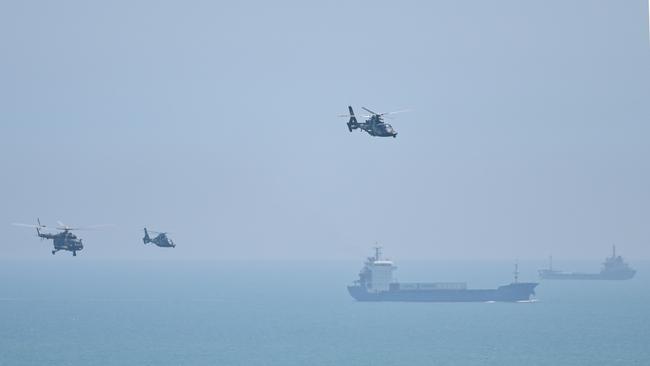
Pelosi has never been my favourite US politician. In domestic politics, I think she represents a pretty retrograde, old-fashioned left liberalism. But some American left liberals still care about human rights and democracy.
At 82, Pelosi seems sharper and more on-the-ball than Biden. Biden was perfectly incoherent, at his doddering and ineffectual worst, over the Pelosi visit. He let it be known that he didn’t want the visit to go ahead. But it went ahead anyway. Biden seemed simultaneously too weak to support the visit and too weak to prevent it. He transformed strategic ambiguity into something like strategic dementia.
Pelosi, by contrast, cogently argued her political and moral case in a powerful opinion piece for The Washington Post. She wrote: “The Chinese Communist Party’s brutal crackdown against Hong Kong’s political freedoms and human rights – even arresting Catholic Cardinal Joseph Zen – cast the promise of ‘one country two systems’ into the dustbin. In Tibet, the CCP has led a campaign to erase the Tibetan people’s language, culture, religion and identity. In Xinjiang, Beijing is perpetrating genocide against Muslim Uighurs and other minorities. And throughout the country, the CCP targets and arrests activists, religious freedom leaders and others who dare to defy the regime. We cannot stand by as the CCP threatens Taiwan – and democracy itself.”
Criticism of Pelosi for the timing of her visit is absurd. Such criticism foolishly concedes the legitimacy of any unreasonableness and aggression on Beijing’s part, with the democratic politician, in this case Pelosi, held to be responsible for “provoking” the unreasonable actor.
Pelosi has received a lot of bipartisan, Republican support for this trip. One Republican, of course, denounced her. Donald Trump slammed Pelosi’s trip and said she would make everything worse. In a crowded field, this is one of the most pathetic and dishonourable of Trump’s interventions. There is not a single moment when Trump puts anything, even the national interest against Chinese intimidation, ahead of his momentary personal political interests and vendettas.
Beijing denounced Pelosi’s visit in extravagant terms, calling it “manic, irresponsible and highly irrational”. As well as its extremely dangerous military manoeuvres, Beijing imposed a range of trade bans on Taiwan.
These actions show how ill-advised it is for any US-allied nation to allow China to dominate any critical supply chain.
Elite US, Australian and other allied intelligence and assessment agency opinion is divided about when, and even if, Beijing plans military action over Taiwan.
The truth is no Western intelligence agency has a clue what happens at the heart of the top Chinese leadership. There are no human sources and no electronic sources either.
One lesson from the Cold War with the Soviet Union is that even a bellicose, militant, aggressive and hostile super power can be effectively constrained if Western leadership is consistent and even modestly competent, and if the principle, and physical reality, of deterrence is strong enough. That is why Australia is holding a quick, dirty strategic review designed to get more firepower, more deterrent credibility, in our north and covering our maritime approaches. That will surely mean many more missiles and drones and will prioritise lethal capabilities we can get quickly.
The world has not exactly teetered on the brink of war this week, but it has seen an ugly foretaste of much worse things, which could easily come along. Peace is not remotely guaranteed, for Taiwan or anyone else.


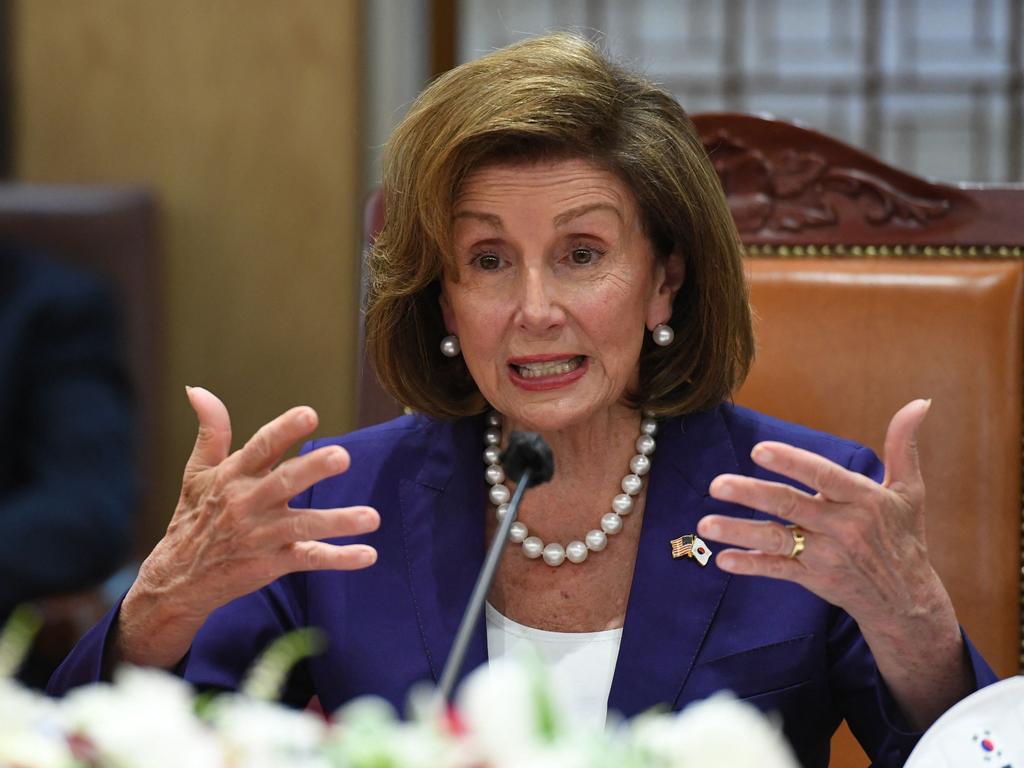
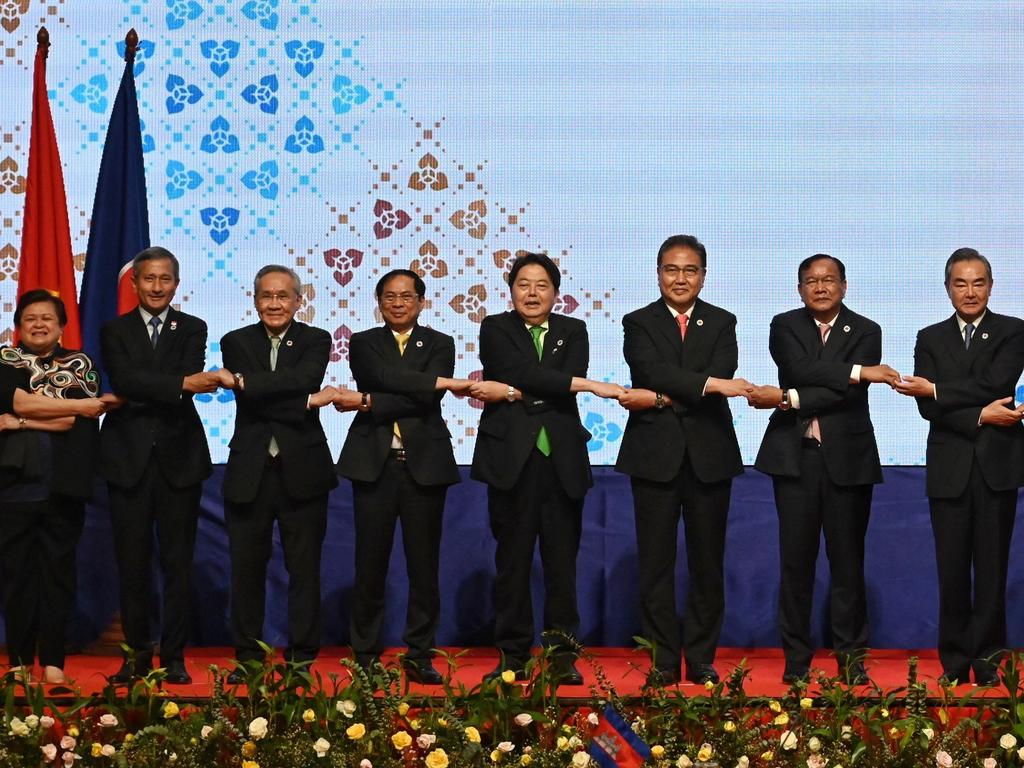

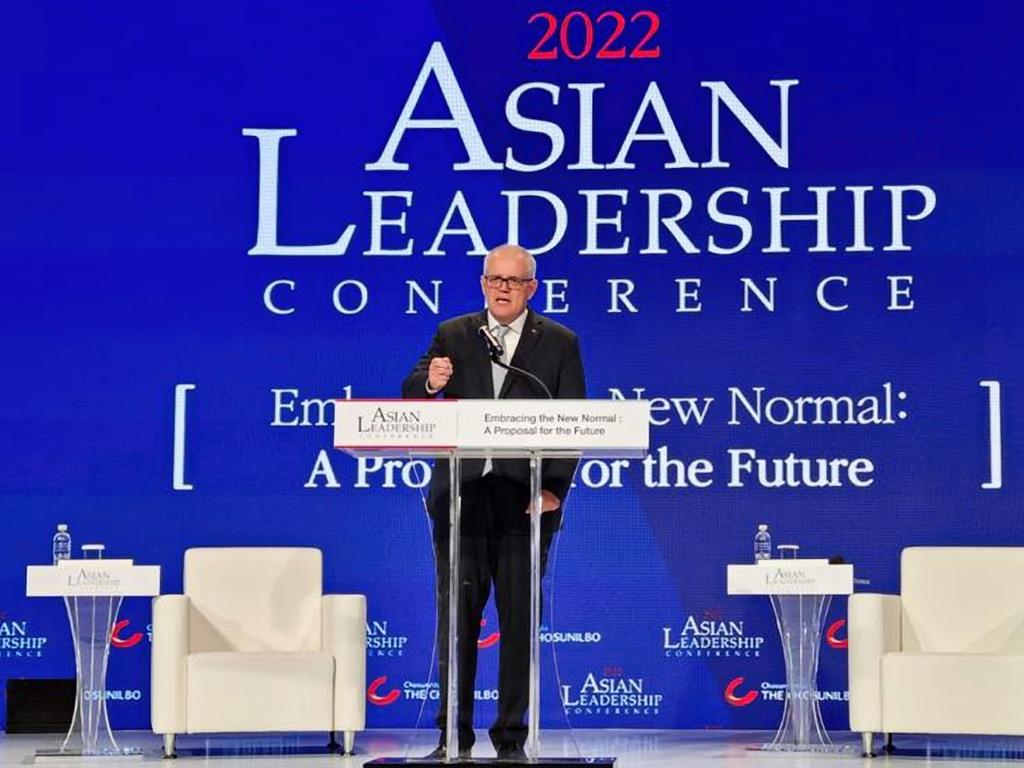
“Those who play with fire will perish by it.”